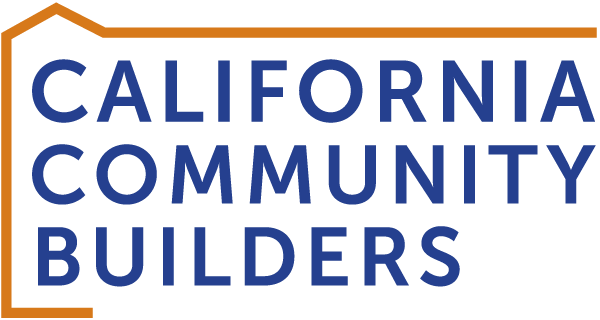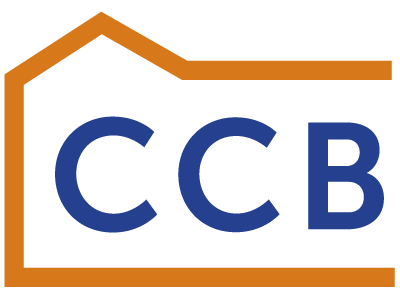Adam Briones, CEO of California Community Builders
Jordan Panana Carbajal, California YIMBY
Robert Apodaca, Executive Director at The Two Hundred for Homeownership
Interview with Jordan Panana Carbajal and Robert Apodaca
In our most recent Webinar, The state of Homeownership Legislation: June 2023 Edition, Adam Briones interviews Jordan Panana Carbajal and Robert Apodaca about their work and legislation they’re supporting.
[Adam] Jordan, Go ahead and tell the audience a little about yourself and some of the work that California YIMBY does.
[Jordan Panana Carbajal] Thanks Adam!I was actually born in Lima, Peru. I migrated here when I was four years old with my family and grew up in Petaluma, CA -- about 45 minutes away from San Francisco.
I graduated from UC Davis then came to the Capitol as an Assembly fellow. I worked for various members and found my passion for housing when I was working in the legislature after seeing all these amazing bills come in. Shortly after, I had the opportunity to join California YIMBY as a Legislative Advocate.
[Adam] Awesome Jordan. On a scale of one to ten, ten. How well do you think your parents understand some of the more technical issues that you're working on? For example, when you go and talk about subdivision map stuff?
[Jordan Panana Carbajal] They've been trying to be more active in learning about the issue. It's all kind of new to them. Sincemy parents grew up in Peru the different division map back and all the zoning issues in the United States are all different issues compared to Peru but they're they're learning.
[Adam] Jordan, before we move forward, can you give a 30 second overview of California YIMBY? Who you guys are and some of your big priorities this year?
[Jordan Panana Carbajal] Absolutely, for context YIMBY stands for “Yes, In My Backyard”. It’s a Statewide organization of over 80,000 neighbors dedicated to making the state of California an affordable place to live, work and raise a family in. Our focus in the YIMBY movement is pushing legislation up to the state capitol. We're really committed to addressing the state's housing shortage by drafting policies to increase housing production and also being co-sponsors.
[Adam] What are some big trends you're seeing in Sacramento right now for 2023?
[Jordan Panana Carbajal] We've been seeing alot with CEQA legislation. For those that aren’t familiar, CEQA is the California Environmental Quality Act. It takes into account the potential environmental impact that proposed projects would have on a community and gives local jurisdiction the option to put the project on hold to assess. Although it's been viewed as environmental, nowadays as many more developers are trying to build more homes or apartments it has been used as a tool to delay production and housing and projects around the state
Just to name a few bills - AB1317 by Assemblymember Wicks, was introduced as a CEQA noise impact reverse. This would reverse that noise generation by population cannot be considered as a CEQA impact. The bill has bipartisan support. A recent court case earlier in this year with Make UC A Good Neighbor versus the Regents of University of California where they made the argument that the noise impact that can happen from students can impact the environment therefore they delayed the housing productions for students at UC Berkeley.
[Adam] Have there been any big issues that have popped up that you're seeing right now?
[Jordan Panana Carbajal] Something that really caught my eye in recent months was the governor's trailer bills that got introduced. It aims to limit the times opponents can delay projects in court when challenged under the CEQA act. It mostly focuses on infrastructure reform on water and other stuff. Unfortunately it does not include housing.
[Adam] If you were going to pick your top three to five bills that are going to be most impactful, what would your focus be on?
[Jordan Panana Carbajal] SB423 is the extension of SB35 which created the streamline
minister of approvals for infill developments and local jurisdiction that failed to meet arena goals. Now we are co-sponsoring the bill with many many others. That's one of our highest priority bills.
SB450 which was strengthened by SB9. For context, SB9 would let a homeowner build a duplex in their backyards.
SB684 would streamline the Subdivision Map Act to facilitate the homeownership development process.
[Adam] Thank you, Jordan. Next I’d like to bring Robert Apodaca to the stage. Robert, tell us a little about yourself.
[Robert Apodaca] I was born and raised in the state of New Mexico and came to Berkeley as a transfer student. I had the opportunity of meeting a lot of great leaders who have been lifetime friends of mine and we were doing some significant work in a number of areas including housing.
At the very young age of 20, I along with two other students had the opportunity to start a housing project for University students at Berkeley. There were only 150 Chicanos at that time, latinos today and we wanted to create a home away from home. We were able to do that by finding a fraternity house that was available, raising money, and making all the arrangements for the students to get out of their dormitory contracts. We did that all in a period of six weeks.
It was a rental home that we had for a little over three years and then we shifted over to buying another house right around the corner and that housed 40 students. We bought it for $150,000 and now it’s worth over 3 million dollars. The original organization that had that was called the Fuente Foundation. We then gave it to The Greenlining Institute in 2003. So, I have over 50 years of advocacy in a number of areas and I just have come back in the last 15 years or something that's really dear to my heart that is housing and homeownership but as you indicated I also have been involved in many other sectors that I'm proud of.
[Adam] Robert so kind of just um zooming forward a little bit specific to your work with the Two Hundred for HomeOwnership. Can you give us a little bit of background on it and some of your big picture priorities?
[Robert Apodaca] The 200 is a project that grew out of California Community Builders when John Kimbo and I started that in 2008 wanting to get into affordable housing. This was right before the mortgage crisis so when that happened we then started to focus attention on homeownership and nobody was really focused on it. Everybody was trying to solve the problem at hand that affected millions of families that lost their homes and were displaced and became renters.
They had to restore their credit and it just created havoc not only in their personal lives but with the overall economy. So, we wanted to build something and decided to build a home ownership product. We wanted to prove that a non-profit organization could in fact do that, as opposed to just building more affordable housing. We did that in the City of Fireball and we were able to get a construction loan through Bank of the West. We enabled 10 families earning thirty percent of AMI or less to be able to purchase those homes. None of those families in the first 20 years lost the home. Some of them have recently sold it so we were able to prove that in fact a poor family was able to, with counseling, and with some down payment assistance, was able to earn some equity.
[Adam] Would you mind giving the audience a quick overview of AB 1508 -- what it is and how it came about?
[Robert Apodaca] Sure. We were advised that we should not come in and and to prescribe to the state how to develop more homeownership product, so one of our board members Joe Cotto suggested we do something similar to what he did and his idea was to create a task force of the assembly members and senators to figure out what are the obstacles for homeownership production and then to come up with a solutions and come up with a report and an action plan to do that that bill was introduced four years ago. Wwe were able to get it out of the housing committee two years in a row but ran into problems later on in Appropriations because of the cost factor. So then we just last year decided to try something differently and just get right to the meat of the problem and make it a higher priority for first-time home buyers and the way we did that was through amending the actual code the housing plan to create metrics and also introduce home ownership in that statute because all through the the legal language and the code they're talking about housing but not homeownership.
[Adam] Do you want to talk a little bit about the ADU legislation you’re supporting this year?
[Robert Apodaca] AB1033 is a homeownership bill that can be created to allow the homeowner to be able to sell the ADU unit as a condominium.
[Adam] How would you describe this to someone with absolutely no background in housing? An accessory dwelling unit policy… Why is it important that we be able to sell an ADU as a separate condo?
[Robert Apodaca] Well for one it's not a rental, it's a homeownership product. Granted, this is a very large ADU. It’s going to be a little over 900 square feet and for a lot of families that's not really possible but I also remind people that I grew up in a small Adobe home in New Mexico there was a 900 square feet and there were five adults and I was the only child in there so I know it's possible. These days there's not going to be enough electrical outlets in an
adobe home for computers and everything else so it's going to be a little bit more challenging but I do think that enabling family and family members to buy the ADU from their parents and
establish a track record of homeownership and then building up some accurate Equity will lead them to then maybe buy their parents home or buy some other home so it's important in the whole process of homeownership.




